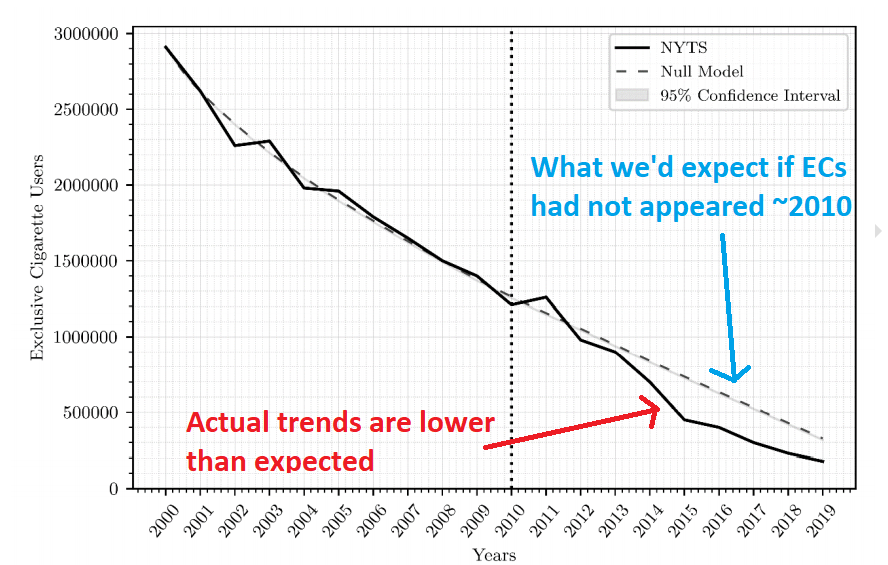We don’t want to fix poverty, even if doing so helps everyone—not if it means life for the “undeserving.”
If you ever want to consider how committed our society is to the foundational lie that life must be earned, and those who fail to earn it must die, consider that the proposition “giving everyone money to spend would be bad for the economy” is widely accepted as truth.
A new study found that giving low-income workers money upfront in their work period helped alleviate the mental burden of their financial problems and allowed them to be more productive \u2014 echoing other findings on the psychological impacts of poverty.https://t.co/zdxItTLDLZ
— NPR (@NPR) February 3, 2021
We don’t want to fix poverty, even if doing so helps everyone—not if it means life for the “undeserving.”
There's a great fear in this country that a single dollar might go to someone who might not deserve it; or that a single given dollar might be spent on something we deem unworthy.
We'll spend five dollars to prevent the waste of that one dollar.
Our use of charity as a way of controlling who gets helped, for example. https://t.co/Ax6Av9J5vb
Charity isn't primarily an act.
— A.R. Moxon (@JuliusGoat) November 10, 2019
Before the act comes an alignment.
Charity is the natural fruit of a deep alignment with the virtue of generosity.
It sure shouldn't be a delivery mechanism for one's own beliefs about worthiness.
Which is why wealthy people like means testing.
https://t.co/bgLKviRjVq
Whenever someone proposes a means-testing solution, it's an indication they've internalized the lie, foundational to the United States, that some people deserve life and others don't.
— A.R. Moxon (@JuliusGoat) December 18, 2020
It's an expensive lie.
As long as people go on believing the lie, it benefits them even if it targets them.
But if you want to spend money trying to administrate it away from the "undeserving" they're happy to exploit it.
These are all expensive lies. https://t.co/WPixtkxACi
To be clear, this lie\u2014that we can't afford to house the houseless\u2014is an *expensive* lie. Not just the considerable moral cost of living in a heartless society: cash on the barrel.
— A.R. Moxon (@JuliusGoat) December 18, 2019
We believe this expensive lie because we believe a deeper lie: that life is something earned.
Which benefits those who benefit from the lie. https://t.co/ZhU0Y3fhwT
UPDATE: Some senior Dems are looking at lowering threshold on stimulus payments so they start phasing out above $50K for single taxpayers; $75K for heads of households; & $100K for married couples
— Jeff Stein (@JStein_WaPo) February 2, 2021
Stressing here: Talks fluid, conversations are ongoinghttps://t.co/0lZ8MKuqbt
Here we see one of the most malicious servants of greed ever born, using our desire to see help go only to the deserving, in order to prevent any help from going to anybody at all. https://t.co/8mM67pXpj1
JUST IN: Sen. Mitch McConnell blasts #CASHAct, refutes Sen. Bernie Sanders: "Our colleague from Vermont is dead wrong on this...\xa0Borrowing from our grandkids to do socialism for rich people is a terrible way to get help to families\xa0who actually need it." pic.twitter.com/k6QfgDdNxq
— The Hill (@thehill) December 31, 2020
It's because he knows that as long as we stay in a framework where some deserve and others don't, money will go to the wealthy either way.
https://t.co/359PyMEgzl
The Democratic party has an obsession with making sure that programs don't help people who "don't need it." This creates hurdles that actually exclude people who need it.
— Lee J. Carter (@carterforva) December 30, 2020
The better way to implement a program is to make it universal, then claw it back from the rich via taxes.
He's not standing up for unemployed people. He's defending the lie that life is for the deserving. https://t.co/iHXbGYqb6Q
Trying to figure out how anyone justifies payments to over 100 million people that have *not* lost their job?
— Dan Crenshaw (@DanCrenshawTX) December 19, 2020
Focus our taxpayer dollar funded relief on the unemployed & those with their hours cut, not the fully employed just working from home all year.https://t.co/OvPXzzKQuY
More from A.R. Moxon
*Ossoff and Warnock win handily*
Pundits: Ah. Nevertheless,
Congressional Republicans balk at Joe Biden\u2019s $1.9 trillion relief plan, complicating push for quick passage https://t.co/npXogXvBHM
— The Washington Post (@washingtonpost) January 15, 2021
The only way political reporting in this country makes sense is if you understand that the almost universal, almost subconscious default assumption: that conservative white people are the protagonists of any story that's being told, no matter the facts of the story.
Just do the obvious and necessary good things and let the horrid evil people who hate good things squeal and cry about it forever.
I really need Democrats who will state the clear and obvious truth, which is that Republicans are our enemies, because they insist on attacking the very idea of a shared society and are more than happy to use violence to do it, which is the very definition of an enemy.
You can't make people who want to kill you not be your enemies even if you wish they'd be your friend.
They can stop trying to kill you, but until that happens they are your enemy, and acknowledging that fact isn't what makes that fact true.
"If they start canceling these American presidents, they're gonna come after Bible characters next. Mark my words" -- Fox News "news side" host Bill Hemmer pic.twitter.com/qTPV0NERv8
— Aaron Rupar (@atrupar) February 19, 2021
Imagine if Christians actually sacrificed themselves for the good of those they considered their enemies, with no thought of any recompense or reward, but only to honor the essential humanity of all people.
Imagine if Christians sold all their possessions and gave it to the poor.
Imagine if they relentlessly stood up for the widow, the orphan, and the foreigner.
Imagine if they worshipped a God whose response to political power was to reject it.
Or cancelled all debt owed them?
Imagine if the primary orientation of Christians was what others needed, not what they deserved.
Imagine Christians with no interest in protecting what they had.
Imagine Christians who made room for other beliefs, and honored the truths they found there.
Imagine Christians who saved their forgiveness and mercy for others, rather than saving it for themselves.
Whose empathy went first to the abused, not the abuser.
Who didn't see tax as theft; who didn't need to control distribution of public good to the deserving.
Government is how we organize, manage and maintain our society, but to acknowledge that is to acknowledge society, and one's responsibility to organize, manage, and maintain it.
#COVID19 didn\u2019t close churches. Government did.
— Rep. Jim Jordan (@Jim_Jordan) December 28, 2020
Government didn't close churches. Churches closed because people with something more than a childishly selfish view of the world understood their responsibility to the shared life of a society, and government is how that understanding was operationalized and delivered.
Nor does government militarize police. The police is militarized because people with a fearful, hateful or selfish view of the world understand a militarized police will operationalize & deliver that fear, hate, and greed through the mechanism of government.
Government is *us*.
Those who now align with a party actively working to dissolve and demolish democracy in our country do so not because they don't understand this, but because they do.
Democracy allows people they fear and hate to be government with them.
So they hate democracy, and government.
People who align with a party standing in the way of any solution, any maintenance, any governance, do so not because they don't understand this, but because they do.
Better to die of sickness, disease, and neglect than allow those they hate and fear to be government with them.
More from Society
You May Also Like
Please add your own.
2/ The Magic Question: "What would need to be true for you
1/\u201cWhat would need to be true for you to\u2026.X\u201d
— Erik Torenberg (@eriktorenberg) December 4, 2018
Why is this the most powerful question you can ask when attempting to reach an agreement with another human being or organization?
A thread, co-written by @deanmbrody: https://t.co/Yo6jHbSit9
3/ On evaluating where someone’s head is at regarding a topic they are being wishy-washy about or delaying.
“Gun to the head—what would you decide now?”
“Fast forward 6 months after your sabbatical--how would you decide: what criteria is most important to you?”
4/ Other Q’s re: decisions:
“Putting aside a list of pros/cons, what’s the *one* reason you’re doing this?” “Why is that the most important reason?”
“What’s end-game here?”
“What does success look like in a world where you pick that path?”
5/ When listening, after empathizing, and wanting to help them make their own decisions without imposing your world view:
“What would the best version of yourself do”?




















